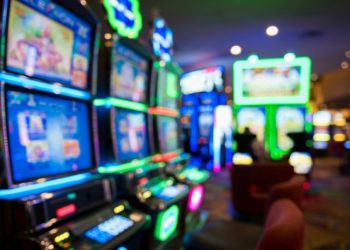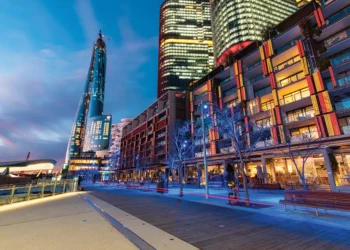Pachinko’s grip on the Japanese psyche remains strong even in a crisis.
Shouldn’t Japan’s triple blow of natural disaster, nuclear accident and associated economic fallout boost rather than diminish the case for casinos in that country? (That’s provided they’re built robustly and kept away from the coast and power stations.)
There’s certainly a precedent for countries looking for a quick stimulus to the economy or undergoing economic shock to look to casinos as a partial fix. Singapore is an example of the first scenario, and Ireland an example of the second one.
Singapore’s ‘issue’ was a flagging tourism sector blamed on fresh regional competition from the likes of Hong Kong for the lucrative airline stopover visitor segment.
Barclays Capital said in comments to the news agency Agence France Presse recently that the two integrated gaming resorts that opened in Singapore last year are contributing an estimated 0.3% to 0.4% annually to the city-state’s GDP. Barclays added this could rise to 0.7% “in the near future”.
Ireland’s problem was a budget deficit linked to lax credit policies in the country’s banking sector. In September that deficit was forecast to reach 32% of gross domestic product (GDP) this year. Earlier this week Ireland’s Department of Justice said it had received a proposal for a US$427 million ‘super casino’ on the banks of the river Liffey in the country’s capital, Dublin.
The fact Japan is in a highly active earthquake zone need not in itself disbar future large scale infrastructure investment of the kind associated with modern casino resorts. Thanks to Japan’s robust building inspection and construction regime most major structures survived even the recent 9.0 magnitude quake. The tsunami that accompanied the earthquake does however create a strong argument for building any such casino resorts well inland.
As far back as the mid-2000s, the Japanese media were reporting that 22 of the country’s 47 prefectures were in favour of regulated casino gaming. Tokyo’s Governor Shintaro Ishihara has been a major proponent of the idea.
The real elephant-sized sumo wrestler in the room regarding the prospects for casinos in Japan is not natural disasters. It’s not even the political instability that has seen four changes of prime minister since Junichiro Koizumi stepped down from the role in September 2006.
The problem is pachinko, the Japanese pinball-like game to be found everywhere in the country. Japanese law essentially prohibits gambling organised by private entities. However pachinko is defined as a “speculative pastime,” in government guidelines. As a result it’s classified as part of the leisure industry and supervised as such by the National Police Agency.
Some sections of the Japanese media claim that pachinko operators make informal payments to the police in return for this legal laxity and that some pachinko operators also channel money to Japanese politicians, in return for political lobbying including support of the pachinko industry.
It all adds up to the fact there is a public perception in Japan that any campaign in support of casino gaming is actually an attack on the pachinko industry and therefore de facto a campaign in support of political reform and reform of political funding. That’s a much bigger issue and far hotter topic within Japan than even the social utility of gambling as a legally sanctioned activity.
Regulation of casino gambling in Japan would arguably create immediate and direct pressure to produce an equivalent law for pachinko, though for some interest groups (arguably including the police) this would constitute an equally powerful argument against reform.
An alternative—to put casino gaming on the same legally woolly footing as pachinko by offering prizes exchangeable for cash—has already been rejected by the National Police Agency and the Justice Ministry. Such as proposal was made by Governor Ishihara in Tokyo back in 2003
Casino gaming in Asia has a proven track record of increasing inward foreign tourism. Macau received three times as many non-resident and foreign tourists in 2010 as the whole of Japan (25 million in Macau compared to 8.6 million for Japan). Prior to the earthquake and subsequent nuclear disaster, inward tourism to Japan showed a modest 3.1% annual increase in visitor numbers in 2010 according to data from Japan’s Ministry of Justice and from Japan National Tourist Organization. In Singapore in 2010—coincidental with the opening of its two casino resorts in February and April—the city-state recorded 11 consecutive months of record year on year growth in foreign visitors. Singapore also managed a 47% year on year growth in tourism receipts between January and September that year according to the Singapore Tourism Board.
Japan’s nuclear power station crisis plus the huge clean up and reconstruction operation on the north east coast of the main island, Honshu, is likely to mean no growth for inward tourism to Japan this year—and possibly a net fall in visitors. Pachinko isn’t likely to assist in the process of rebuilding overseas tourism. Pachinko has never been marketed as a global game. It does however provide up to 300,000 jobs in parlours and equipment manufacturing according to the Japan Productivity Center, an economic think tank based in Tokyo. But that figure is likely to fall in line with declining revenues and consolidation within the industry. At any rate pachinko—as a mature industry dating back nearly 70 years to the post-war era—seems unlikely to be able to provide the kind of inward investment and economic stimulus the country will badly need in the next few years.
For a more detailed analysis of pachinko and its impact on moves to legalise casinos in Japan, see the upcoming April edition of Inside Asian Gaming.


































